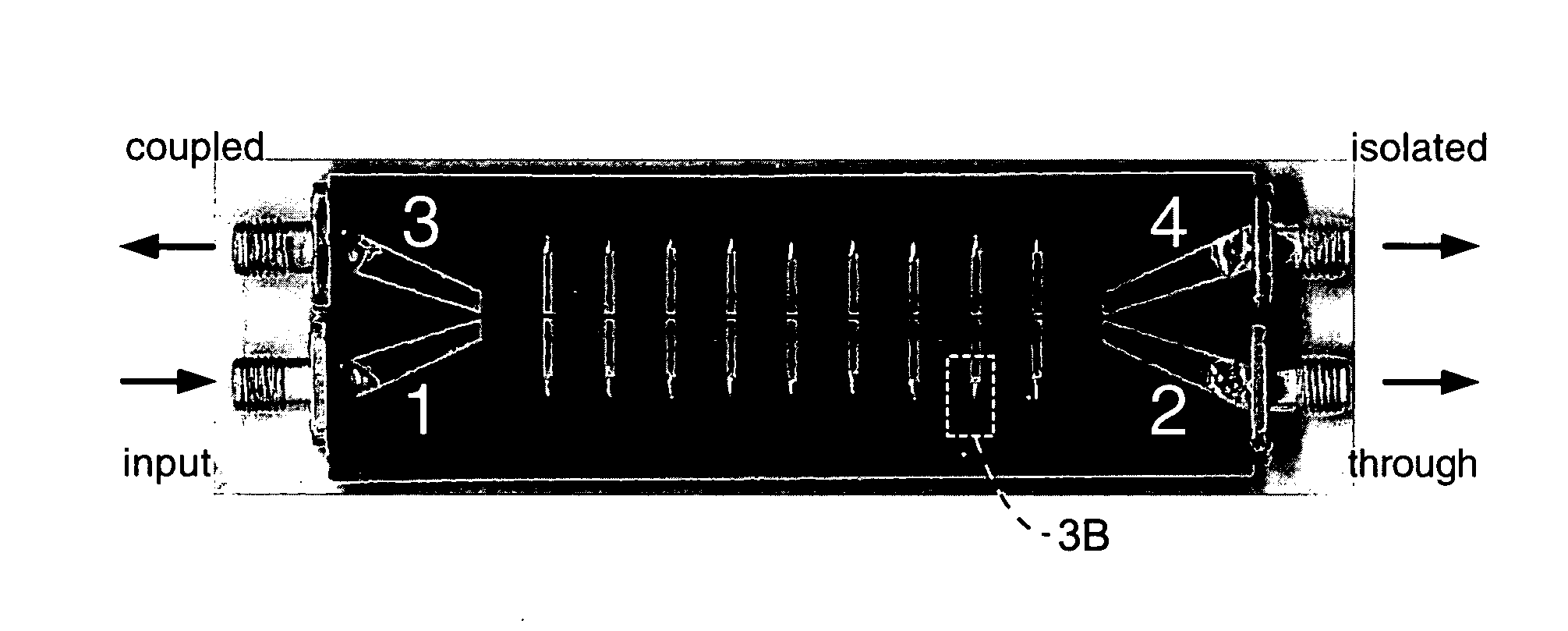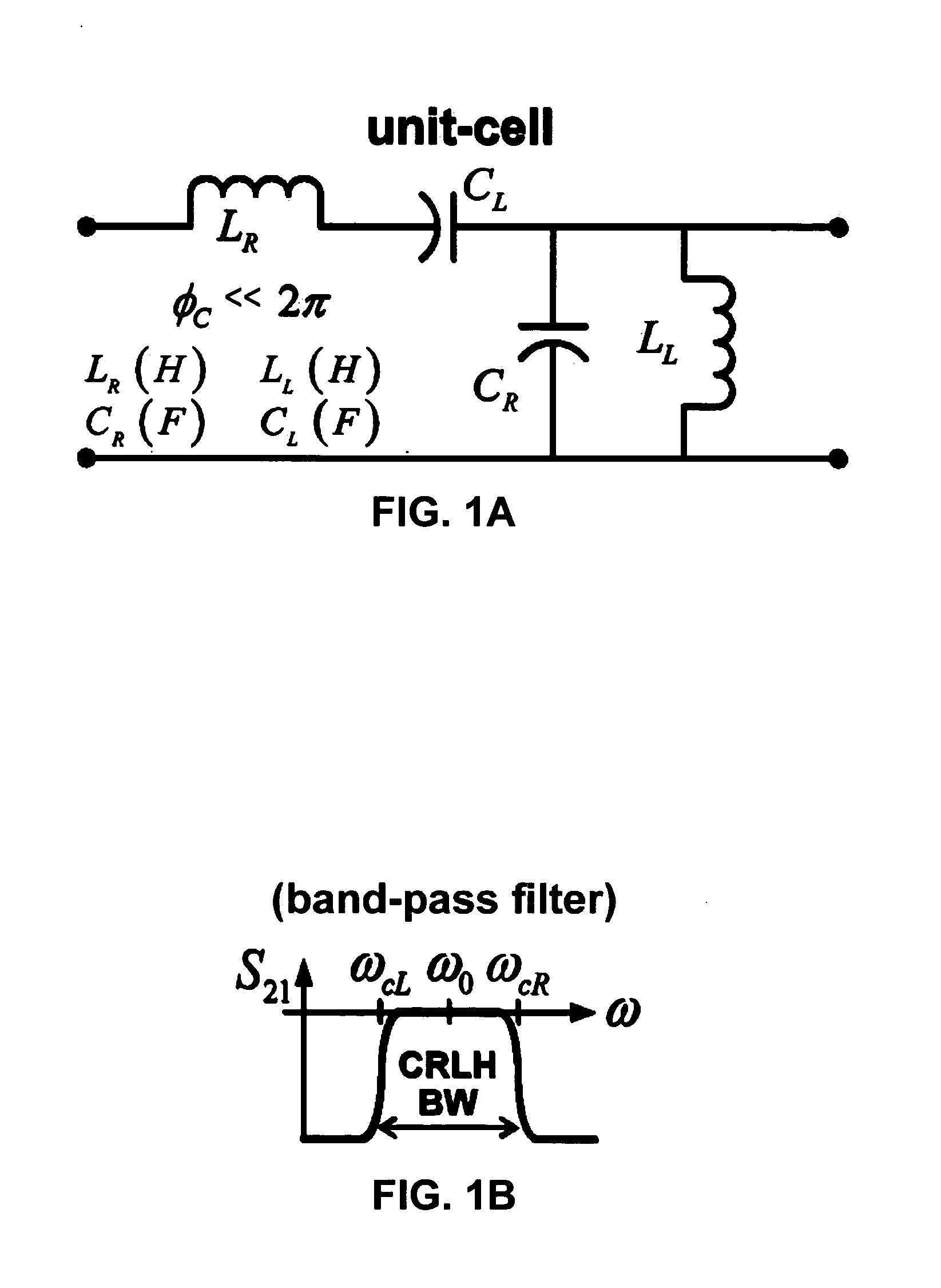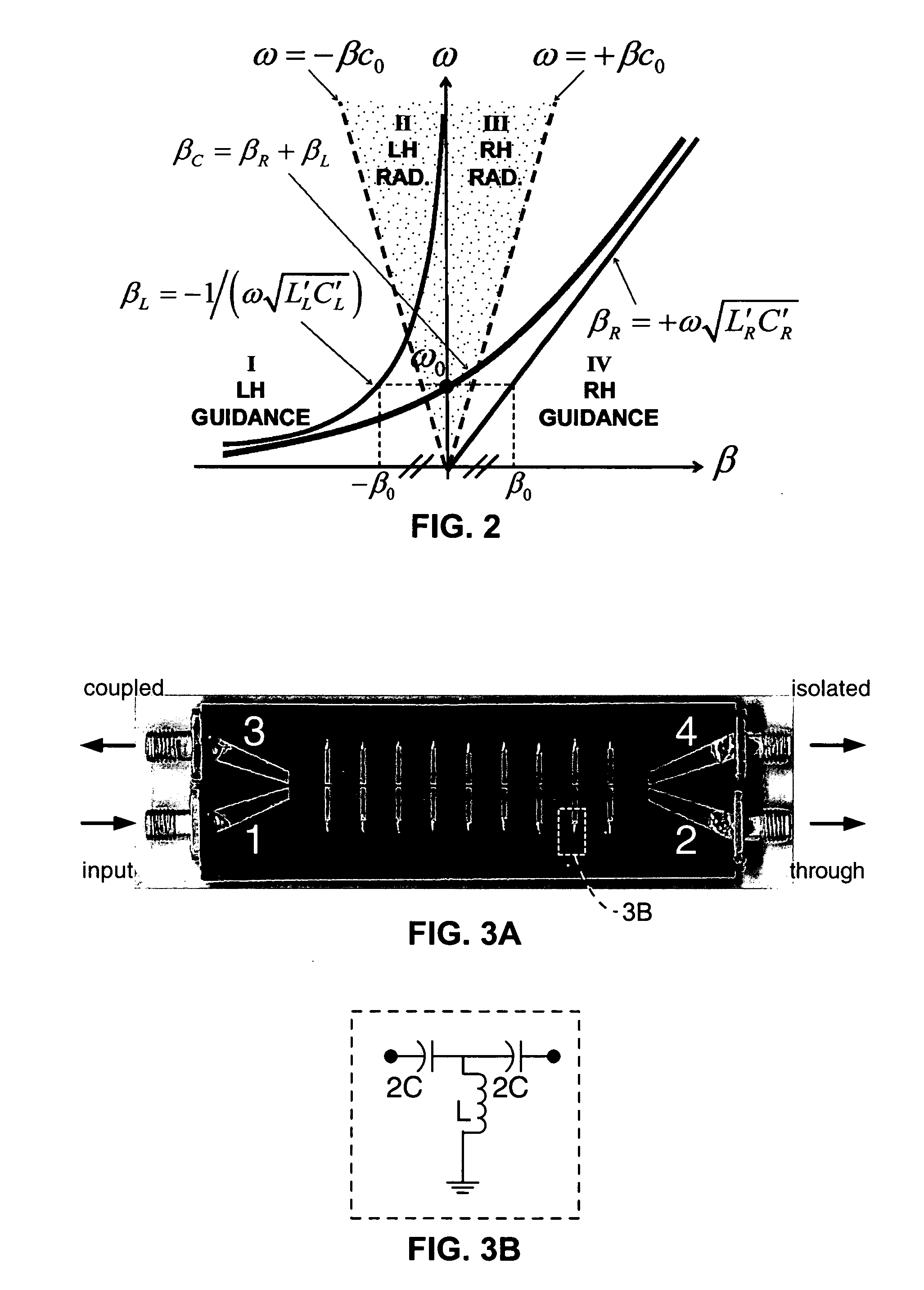Composite right/left handed (CRLH) couplers
a right/left-handed, coupler technology, applied in the direction of coupling devices, electrical equipment, transmission, etc., can solve the problem that conventional coupled-line couplers cannot achieve tight coupling levels, and achieve the effect of enhancing bandwidth, reducing device size, and increasing bandwidth
- Summary
- Abstract
- Description
- Claims
- Application Information
AI Technical Summary
Benefits of technology
Problems solved by technology
Method used
Image
Examples
Embodiment Construction
[0084] Referring more specifically to the drawings, for illustrative purposes the present invention is embodied in the apparatus generally shown in FIG. 1 through FIG. 21. It will be appreciated that the apparatus may vary as to configuration and as to details of the parts, and that the method may vary as to the specific steps and sequence, without departing from the basic concepts as disclosed herein.
[0085] 1. Introduction to Coupler Embodiments.
[0086]FIG. 1A and FIG. 1B illustrate the general characteristics of an artificial CRLH-TL. FIG. 1A depicts a unit cell of the CRLH-TL while FIG. 1B illustrates general bandpass filter characteristics. The pure RH-TL (low-pass) and LH-TL (high-pass) are respectively obtained by suppressing the elements of the opposite type. An essential requirement for the artificial CRLH-TL to mimic an ideal CRLH-TL (in its transmission-band) is that the electrical length of the unit cell be small, practically smaller than approximately π / 2. Under this co...
PUM
 Login to View More
Login to View More Abstract
Description
Claims
Application Information
 Login to View More
Login to View More - R&D
- Intellectual Property
- Life Sciences
- Materials
- Tech Scout
- Unparalleled Data Quality
- Higher Quality Content
- 60% Fewer Hallucinations
Browse by: Latest US Patents, China's latest patents, Technical Efficacy Thesaurus, Application Domain, Technology Topic, Popular Technical Reports.
© 2025 PatSnap. All rights reserved.Legal|Privacy policy|Modern Slavery Act Transparency Statement|Sitemap|About US| Contact US: help@patsnap.com



